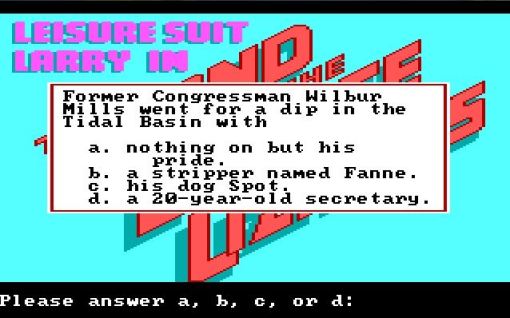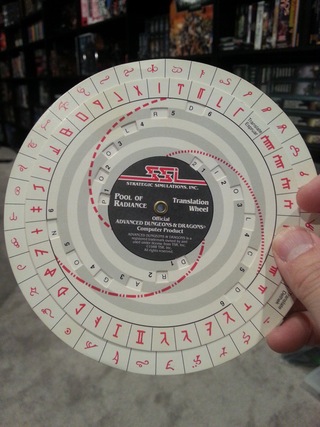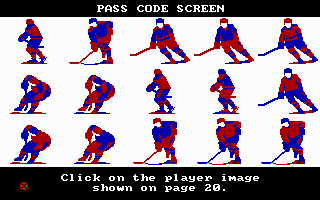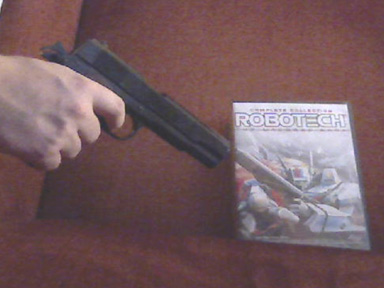This is going to be a weird article to type but it’s something I’ve been mulling over for a while. It’s about software piracy, but it’s more of a historical take on it rather than any outright moralizing (though I would be remiss to not talk about that too but that’ll be at the end).
So, I’m sure a lot of people these days are familiar with the various forms of Digital Rights Management, from the relatively benign (Steam), to the very bad (Starforce, SecuROM, UbiSoft’s various implementations, etc.). But to be honest a lot of this stuff is at least a lot less tedious than the ways games used to protect against piracy.
CD Keys are something most people these days still have familiarity with of course; having to enter a series of alphanumeric characters roughly on the same level of complexity as the passwords for some NES games, but even those weren’t like the early days.
In the old days the most basic way to protect people from copying and distributing your game was through “manual protection”. Basically the player would need to enter a particular word from the game manual (like the 7th word in the 2nd paragraph on the 14th page or something like that), or perhaps answer some question regarding a particular fact from said manual (the original DOS Mechwarrior was like this, asking you to enter the height or weight of certain battlemechs, for example). This of course was easily defeated by a photocopier. Not that photocopying was widespread or cheap in the late 1980s/early 1990s, but it was still doable. Some companies sorta put a twist on this trend by having quizzes at the start of the game, but for age verification purcahses. The Leisure Suit Larry games had a quiz full of questions that, in theory, only adults could answer. Of course this could also be bypassed by asking your dad although I’m sure that was a weird conversation in the making:

Dad how do you wear just your pride? Also what’s a stripper?
As the manuals were defeated the developers naturally changed tactics. Black and White manuals gave way to full color manuals with color-based verification (usually matching a picture or design that could vary in color) and code wheels. Code wheels required users to match up contextual clues from the screen in order to verify them. There were things like the Dial-A-Pirate code wheel from monkey island, to the cryptoquizzical ones like this thing from Pool of Radiance:

Even if I knew the context I’m not sure I’d get it
Again both of these could be defeated by photocopying, but they weren’t as easy (again, color copying back then was even rarer than b&w). Granted depending on the level of colors needed for verification one could easily get past it (using only two colors, for example, since even on a black and white copier you still had shades).
Anyway, let’s get to my experience. My dad worked for IBM for many years. This was in the days where IBM still made PCs so occasionally he’d be able to take one home for a while or purchase one outright. It’s how I got to experience stuff like Tony LaRussa Baseball II, Wolfenstein 3D, Descent, the early days of the Internet, and many more games and applications. His coworkers also would frequently pass games around to one another, complete with photocopied manuals (in black and white, mind). This is how I was able to bypass things like this for Wayne Gretzky’s Hockey:

Again it being only two colors is a bit of a mistake, a black and white copier can still make out the differences.
As well as a similar scheme for Joe Montana’s Football. Now I’m telling this story for a couple reasons, one of which being that software piracy has always existed, and also that even people in the industry would occasionally copy that floppy, despite what PSAs would tell us otherwise. It’s an interesting thing to be sure, that for as long as there’s been software there’s been software pirates. I don’t really remember what games cost back then (We did of course buy games on occasion but I was not paying for them) so it’s hard for me to say piracy was motivated by price back then. It could’ve been that plus a bit of the issue where getting reviews of anything back then would be difficult outside of a magazine, and I didn’t start reading stuff like PC Gamer and PC Entertainment until like 1996 (which of course also had demo discs). Also reading a bunch of british PC game mags was a weird experience but that’s a story for another time.
Hm…I sorta ran out of things to say. Oh well. Photocopying manuals sure is a different beast from downloading a crack from some shady warez site. Probably safer too. Also if you must pirate games (cause let’s be honest, I can’t stop you) at least pay for a game if you end up liking it.
